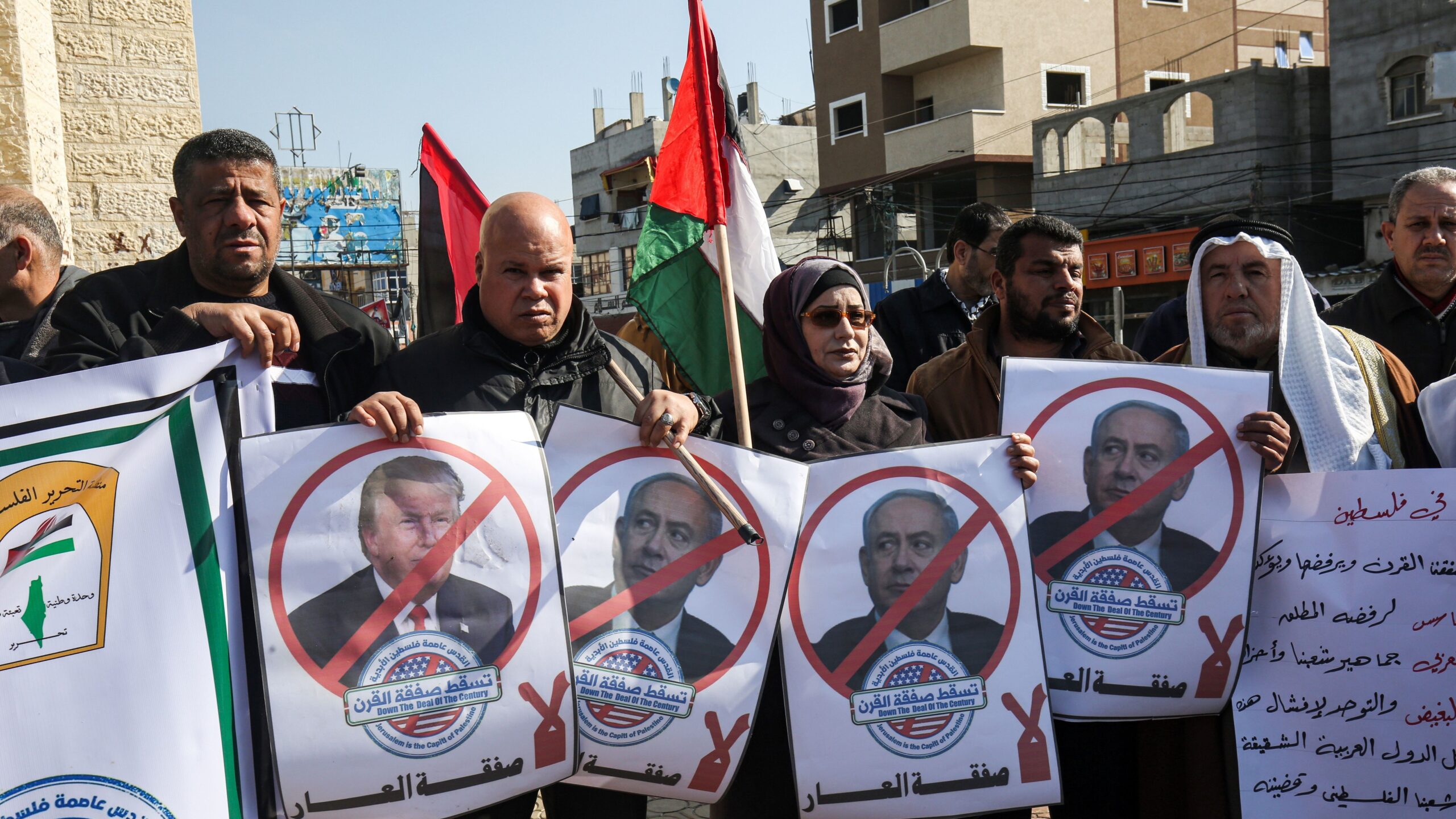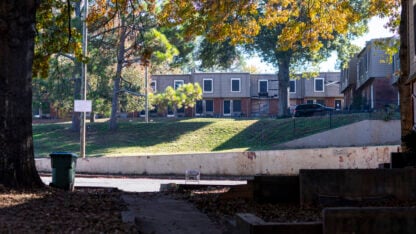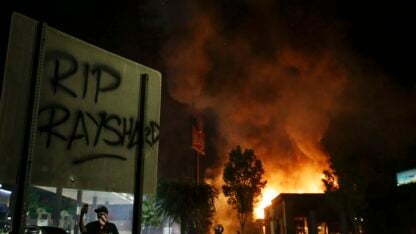White House To Unveil Mideast Peace Plan — Despite Palestinian Rejection

Palestinian demonstrators in Rafah, in the southern Gaza strip, hold portraits of President Trump and Israeli Prime Minister Benjamin Netanyahu during a protest against Trump’s expected announcement of a peace plan on Tuesday.
Said Khatib / AFP via Getty Images
President Trump is expected to unveil his long-awaited Israeli-Palestinian peace plan that he hopes will bring about “the deal of the century.” But the Palestinian leadership, which severed relations with the U.S. administration as it took a series of pro-Israel moves, has already rejected the plan.
The president was set to be joined by Israeli Prime Minister Benjamin Netanyahu in announcing the plan on Tuesday, which has been in the making since the earliest days of the administration when Trump assigned his senior adviser and son-in-law Jared Kushner the task of trying to forge the elusive deal.
A day before, the president met separately with Netanyahu and Benny Gantz, the leader of Israel’s Blue and White political alliance, Netanyahu’s principal political opponent. Both Netanyahu and Gantz have expressed their approval of the plan.
Netanyahu called the plan “a vision of peace which is historic” and thanked the president “for everything you’ve done for Israel,” including recognizing Jerusalem as the capital.
Trump said Monday that the Palestinians “probably won’t want [the plan] initially,” but “I think in the end they’re going to want it.”
“It’s very good for them. In fact, it’s overly good to them,” he said.
“So, we’ll see what happens,” he said. “Without them, we don’t do a deal. And that’s OK.”
After Trump ordered the U.S. Embassy moved to Jerusalem from Tel Aviv in December 2017, the Palestinians largely broke off relations with the White House. The move, however, proved extremely popular with Israelis.
A spokesman for Palestinian Authority President Mahmoud Abbas on Monday urged Arab and Muslim ambassadors invited to Tuesday’s “disastrous announcement” not to attend. The spokesman said the Palestinian Authority regarded the ceremonies as “a conspiracy aimed at undermining the rights of our Palestinian people and thwarting the establishment of the State of Palestine with East Jerusalem as its capital.”
Palestinian Authority Prime Minister Mohammad Shtayyeh, speaking in the West Bank city of Ramallah, said Monday that the proposed deal “doesn’t constitute a basis for resolving the conflict.”
In June, the White House released the first half of its peace proposal: a $50 billion investment plan billed as a “new vision” for the Palestinian territories. The U.S. made the creation of the investment fund contingent upon Palestinian acceptance of the second, political part of the peace plan, released Tuesday.
Trump asserted Monday that many Arab countries like the plan. “They think it’s great. They think it’s a big start.”
The plan includes proposals on several core issues that have been major obstacles to progress in previous attempts to forge a comprehensive peace. They include:
Israeli settlements in the West Bank
In April, Netanyahu pledged to annex West Bank settlements in a move aimed at galvanizing support among his right-wing voter base. He later extended that pledge to include annexation of the Jordan Valley in the West Bank, where Palestinians are seeking a separate state. Late last year, U.S. Secretary of State Mike Pompeo announced that the U.S. does not view settlements as a violation of international law, upending the decades-old U.S. policy that settlements are an obstacle to peace.
Palestinian statehood
Palestinians have long sought their own state, and much of the international community has supported that desire. In 2002, then-President George W. Bush called for a Palestinian state as part of his Road Map for Peace. In 2009, Netanyahu supported a “demilitarized” Palestinian state, but by 2015, he had reversed course, declaring his own policy “null and void.”
Palestinian right of return
Some 750,000 Palestinians were displaced during the 1948 Arab-Israeli war. More than seven decades later, Israel denies first-generation Palestinian displaced persons and their descendants the right to return to communities from which they had been expelled or had abandoned.
9(MDAxODM0MDY4MDEyMTY4NDA3MzI3YjkzMw004))








